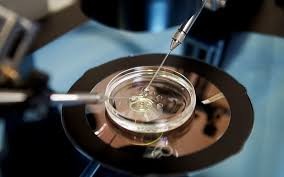In Vitro Fertilization IVF is an assisted reproductive technology, it is the process of fertilization by extracting eggs, retrieving sperm and manually combining an egg and sperm in a laboratory dish. The embryo is then transferred to the uterus.
Human egg and sperm cells have their genes trained to fertilize. After fertilization, the developing embryo begins the genetic program that turns a single cell into a healthy fetus.
Epigenetic changes to the DNA, like the removal of methyl group locks by enzymes, which allows many more genes to be read. Some genes need to be locked down during development, as their genetic messages cause problems for the embryo.
Everything that goes wrong in embryos has the potential to cause infertility or early pregnancy abortions. The scientists sequenced the RNA of more than 30 embryos lacking Trim28 and discovered that Rbmy1a1 gene was unusually active.
The enzyme encoded by Rbmy1a1 produces mRNA transcripts which are harmful to the developing embryo. Detecting the activity of detrimental genes like Rbmy1a1 before an embryo is implanted could improve rates of IVF success.
haleplushearty.blogspot.com


